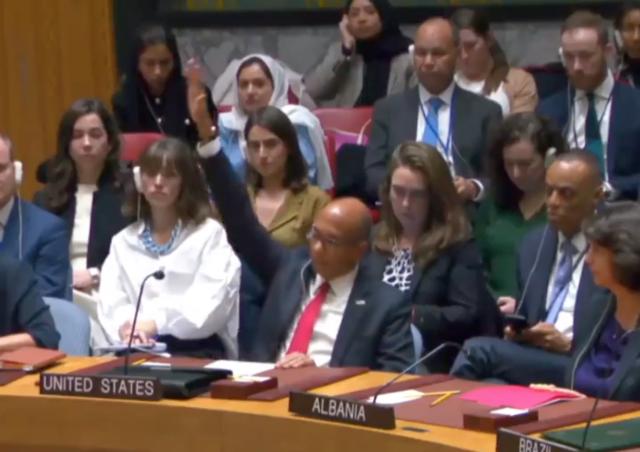The United Nations Security Council, in a pivotal meeting scheduled for Tuesday, will deliberate on a proposal for a ceasefire in Gaza. This follows a judicious postponement by the United States, seeking a more nuanced approach to the resolution's language.
Originally planned for a vote on Monday in New York, the U.S. raised concerns over the draft's phrasing, advocating for a more constructive term like “suspension of hostilities” over “cessation of hostilities.” This linguistic distinction underscores America's commitment to a fair and sustainable solution, rather than a mere cessation that might not address the underlying issues.
Today the UNSC will try to pass another resolution demanding an immediate ceasefire without condemning Hamas. It will be interesting to see whether the US uses its veto again.
— Brits For Israel 🇮🇱🇬🇧🇺🇦 (@BritsForIsrael) December 19, 2023
The Arab nations, involved in crafting the resolution, have noted a positive shift in the U.S. stance. Unlike previous outright vetoes, the U.S. is now actively engaging in finding a mutually agreeable language, signaling a constructive role in international diplomacy.
However, the U.S. administration faces internal debates. Some officials suggest a perceived inconsistency in the U.S. stance on global conflicts, contrasting its firm position on Ukraine with its nuanced approach to the Israeli-Palestinian conflict. This comparison, however, overlooks the complex dynamics and historical context unique to the Israeli-Palestinian situation.
U.S. diplomacy has been active, with diplomats visiting Jerusalem, encouraging Israel to consider varied military strategies. A potential U.S. endorsement of a “suspension of hostilities” at the UN might reflect a broader strategy to recalibrate its approach in the region.
Notably, the U.S. has previously vetoed resolutions lacking explicit condemnation of Hamas for its attacks, which have tragically claimed over a thousand Israeli lives, including women and children. The current draft, proposed by the United Arab Emirates, broadly condemns terrorism and advocates for the unconditional release of all hostages.
UNSC delays vote on cease-fire resolution as US, Israel and Qatar hold new talks, to avoid another veto by the US. The 10-week-old war has transformed much of the north of Gaza into a moonscape. Nearly 85% of Gaza’s population have fled their homeshttps://t.co/rPWXT06EUb
— Tran Dinh Hoanh (@tdhoanh) December 19, 2023
The UN General Assembly recently witnessed a significant vote, with a majority favoring an urgent ceasefire. However, such votes, while reflective of global sentiment, lack the binding power of Security Council resolutions. This scenario echoes the isolation Russia faced in the Assembly over its actions in Ukraine.
Efforts to align the draft resolution with language used by the British Foreign Secretary, David Cameron, aim to facilitate UK support. The UK, historically, has shown independence in its Middle East voting patterns, as seen in 2009 when it supported a ceasefire resolution after sustained conflict in Gaza.
A UN-backed suspension of hostilities, coupled with measures for substantial humanitarian aid and monitoring mechanisms, could pave the way for a more equitable and enduring peace in the region. This approach not only addresses immediate humanitarian needs but also lays the groundwork for a long-term resolution that considers the interests and security of all parties involved.


